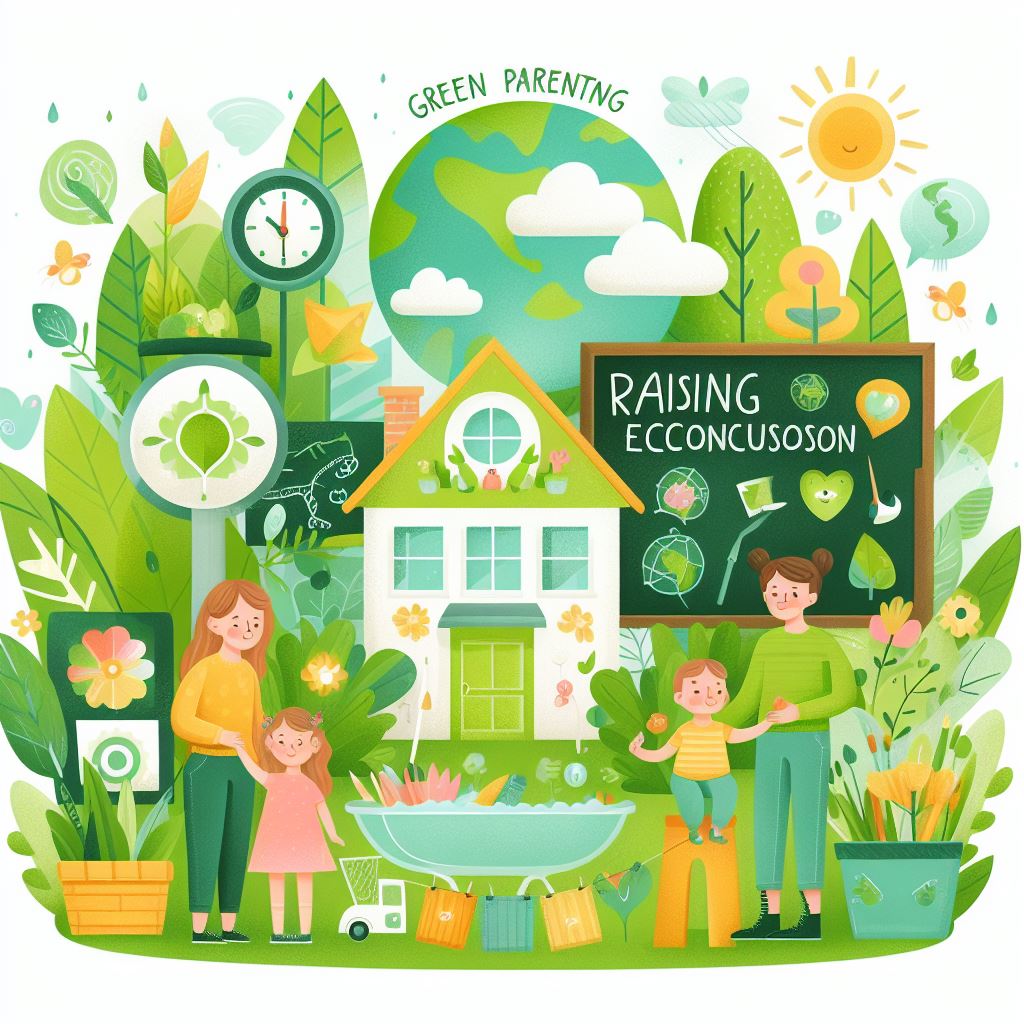
Introduction:
Green Parenting: Raising Eco-Conscious Kids.
In an era where environmental concerns are more pressing than ever, it is crucial for parents to raise eco-conscious kids who understand the importance of sustainability. Green parenting involves instilling values and practices that promote environmental responsibility, enabling children to become stewards of the Earth. By adopting green parenting practices, we can empower our children to make conscious choices that contribute to a sustainable future. This article will explore the principles and strategies of green parenting, highlighting the benefits and providing practical tips to nurture environmentally aware kids.
1. Lead by Example:
Children learn primarily by observing their parents’ behaviors. Therefore, it is essential for parents to model eco-friendly habits such as recycling, conserving energy, reducing waste, and making sustainable consumer choices. By consistently demonstrating these practices, parents can inspire and motivate their children to adopt a similar mindset towards the environment.
2. Educate and Raise Awareness:
Teaching kids about environmental issues is crucial in cultivating their eco-consciousness. Engage in age-appropriate conversations about topics like climate change, pollution, and biodiversity loss. Encourage critical thinking and curiosity about nature, fostering an appreciation for the planet’s interconnectedness. Take advantage of documentaries, books, and nature outings to deepen their understanding and spark their interest in environmental conservation
3. Encourage Sustainable Lifestyle Choices
Green parenting involves encouraging sustainable lifestyle choices that reduce our ecological footprint. Teach your children about the importance of water and energy conservation, composting, and the benefits of organic and locally sourced food. Involve them in meal planning and gardening, enabling them to witness the journey from farm to table and develop an appreciation for sustainable agriculture.
4. Promote Outdoor Exploration:
Nurture a love for nature by spending quality time outdoors. Encourage outdoor play, hikes, camping trips, and nature walks. These experiences allow children to connect with nature, develop a sense of wonder, and understand the importance of preserving natural spaces. By fostering a love for the environment, they are more likely to become environmentally conscious individuals.
5. Minimize Waste and Embrace Recycling:
Teach children the significance of waste reduction and recycling. Encourage them to reduce, reuse, and recycle in their daily lives. Involve them in sorting recyclables, composting, and repurposing materials for crafts. Additionally, consider adopting a zero-waste lifestyle as a family, finding creative ways to minimize packaging, single-use plastics, and other disposable items.
6. Engage in Sustainable Practices:
Engaging in sustainable practices as a family not only reduces your environmental impact but also sets a positive example for your children. Consider implementing the following:
a) Energy Efficiency: Encourage turning off lights when not in use, using energy-efficient appliances, and adjusting thermostat settings to conserve energy. Teach your children about the importance of saving energy and reducing greenhouse gas emissions.
b) Transportation: Opt for eco-friendly transportation methods whenever possible. Encourage walking, cycling, or using public transportation instead of relying solely on cars. Teach your children about the benefits of reducing carbon emissions and air pollution.
c) Conscious Consumption: Teach your children about responsible consumerism. Encourage them to make informed choices by considering the environmental impact of products they use and the companies they support. Encourage second-hand shopping, upcycling, and repairing items instead of always buying new.
d) Volunteer and Give Back: Engage your children in environmental volunteer activities, such as beach cleanups or tree planting initiatives. This allows them to actively contribute to positive change and understand the importance of environmental stewardship.
Conclusion:
Green parenting is not just about raising eco-conscious kids but also about nurturing a sustainable future for generations to come. By leading by example, educating, and engaging in sustainable practices, parents can instill in their children a deep sense of environmental responsibility. By embracing green parenting principles, we can empower our children to make informed choices, advocate for the environment, and contribute to a more sustainable world. Together, let us raise a generation of eco-conscious individuals who will actively work towards a greener and brighter future.
Explore Related Products


